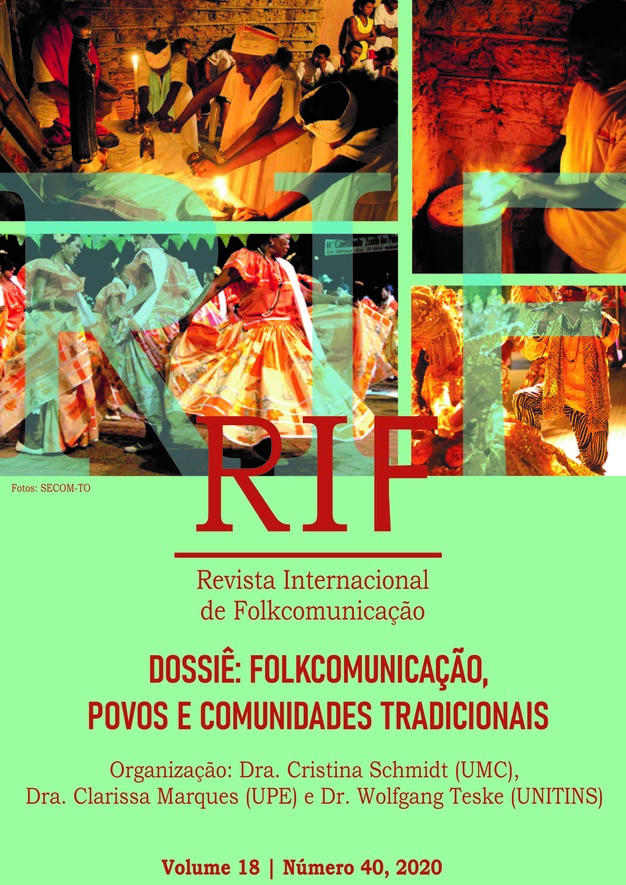Olubajé : The religious discourse for the thanksgiving ritual in the Ilè Asè Iyà Ogunté
DOI:
https://doi.org/10.5212/RIF.v.18.i40.0005Abstract
The Olubajé rituals show symbolic values that make up the universe that circulates around the mythology of the Orixá Omolú. To elaborate this article, the research is based on the observation and phenomenological method (MASSINI, 1989) and adopts the view through discursive analysis (FOUCAULT, 1996) as a methodological device of the dynamics of the utterances made by the priestess responsible for the Temple of Religion Africana Ilè Àsé Iyá Ogunté, in the municipality of Ananindeua, in the state of Pará, at the Olubajé party that takes place with the main interest of thanking for the restoration of the health of the temple priestess. The purpose of this text is to describe and analyze the Olubajé party dedicated to the orixá Omolú, as well as to evaluate the symbologies related to the event related to the mythological narratives of the orixás (PRANDI, 2012).. Candomblé; Olubajé; Discourse analysis; Narratives.
Downloads
Downloads
Published
How to Cite
Issue
Section
License

Este obra está licenciado com uma Licença Creative Commons Atribuição 4.0 Internacional.
Os autores são responsáveis, em qualquer que seja o formato do texto, pelas opiniões expressas ou indiretas presentes em seus respectivos trabalhos, não endossáveis pelo Conselho Editorial e pelos editores da Revista, bem como pela autenticidade do trabalho. Ao publicar trabalhos na Revista Internacional de Folkcomunicação, os autores cedem automaticamente os direitos autorais à publicação para veiculação das produções acadêmicas, sem ônus para a Revista. Os autores detêm os direitos autorais do texto para o caso de publicações posteriores e concedem à Revista Internacional de Folkcomunicação o direito de primeira publicação, com o trabalho simultaneamente licenciado sob a Creative Commons Attribution License, que permite o compartilhamento do trabalho com reconhecimento da autoria e publicação inicial nesta Revista. Por serem publicados em revista de acesso livre, os artigos são de uso gratuito, com atribuições próprias, em atividades educacionais e não-comerciais, sendo permitida a publicação simultânea em repositórios institucionais.































